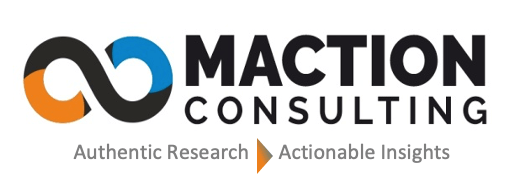In today’s fast-paced digital world, businesses need to stay connected with their customers’ thoughts and preferences. Traditional focus groups, where participants gather in a physical room to discuss products or services, have long been a go-to method for gathering insights. However, virtual focus groups have emerged as a game-changer, offering a flexible, cost-effective way to hear customer opinions online. Using tools like Zoom, FocusVision, and Microsoft Teams, companies can now host interactive discussions with participants from anywhere in the world, making it easier to understand what customers want.
Virtual focus groups work much like a group chat with a purpose. Moderators guide participants through structured conversations about products, services, or ideas, such as a new snack flavor or a marketing campaign. These sessions are recorded, allowing researchers to analyze responses in detail. The online format eliminates travel costs, venue rentals, and logistical hassles, while still delivering rich qualitative data. Additionally, features like screen sharing, polls, and breakout rooms enhance engagement, making virtual focus groups a powerful tool for businesses.
Benefits of Virtual Focus Groups
One major advantage is accessibility. Participants can join from their homes, increasing the likelihood of diverse representation. This is especially valuable for reaching niche audiences or customers in different regions. Online platforms also offer real-time transcription and translation, enabling global brands to conduct multilingual sessions. Moreover, the anonymity of online settings can encourage shyer participants to share candid opinions, leading to more honest feedback.
Another benefit is speed. Virtual focus groups can be organized quickly, with results available almost immediately thanks to digital recordings and analytics tools. This agility is critical for companies needing rapid insights to stay competitive. Finally, the cost savings are significant—businesses can allocate budgets to other areas, like product development, while still gaining valuable customer perspectives.
Case Study 1: Snack Brand Launch
A mid-sized snack company wanted to test a new line of plant-based chips before launching nationwide. Using FocusVision, they conducted virtual focus groups with 30 participants across three U.S. cities. The sessions, moderated via video, allowed participants to taste samples shipped to their homes and share reactions in real time. Screen-sharing enabled the team to present packaging designs, while polls gauged preferences for flavors like spicy avocado and tangy beet.
The results were eye-opening. Participants loved the avocado flavor but found the beet chips too earthy. They also suggested brighter packaging to stand out on shelves. By implementing these changes, the company saw a 20% increase in initial sales compared to their previous launches. The virtual format saved them $15,000 in travel and venue costs, proving both efficient and effective.
Case Study 2: Tech Firm’s App Redesign
A tech firm aimed to redesign its fitness tracking app to appeal to younger users. They used Zoom to host virtual focus groups with 25 Gen Z participants from various countries. Breakout rooms allowed smaller group discussions on specific features, like gamified challenges and social sharing options. Moderators used live polls to rank desired functionalities, such as integration with wearable devices.
Feedback revealed that users wanted a simpler interface and more customization options. The firm incorporated these insights, resulting in a 30% increase in app downloads among the target demographic within three months of the redesign. The global reach of the virtual sessions provided diverse perspectives that wouldn’t have been possible in a single-location focus group.
The Future of Customer Insights
Virtual focus groups are transforming how businesses connect with customers. They offer unparalleled flexibility, cost savings, and the ability to tap into global audiences. As tools like Zoom and FocusVision continue to evolve, expect even more innovative features, such as AI-driven sentiment analysis, to enhance their value. For companies looking to stay ahead, virtual focus groups are a smart, scalable way to listen and learn.


